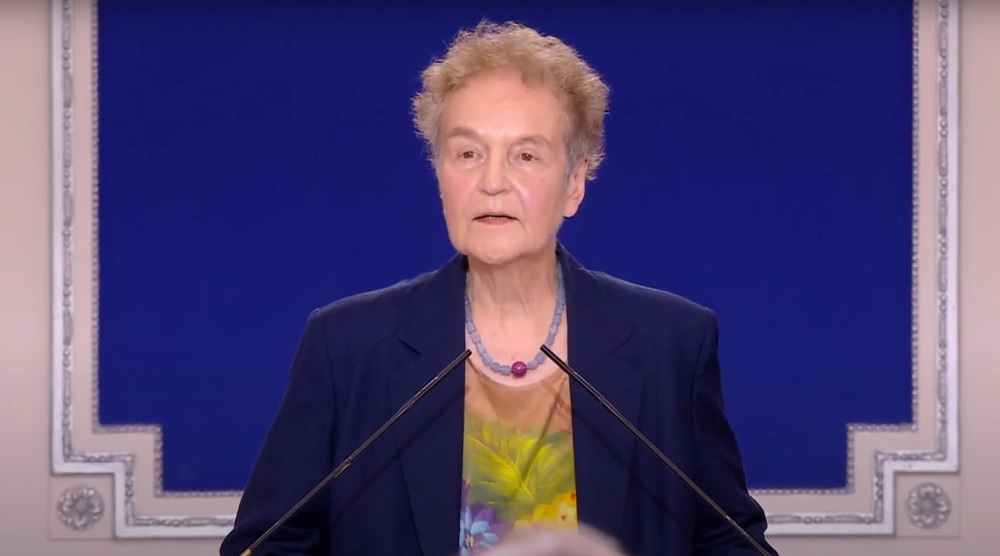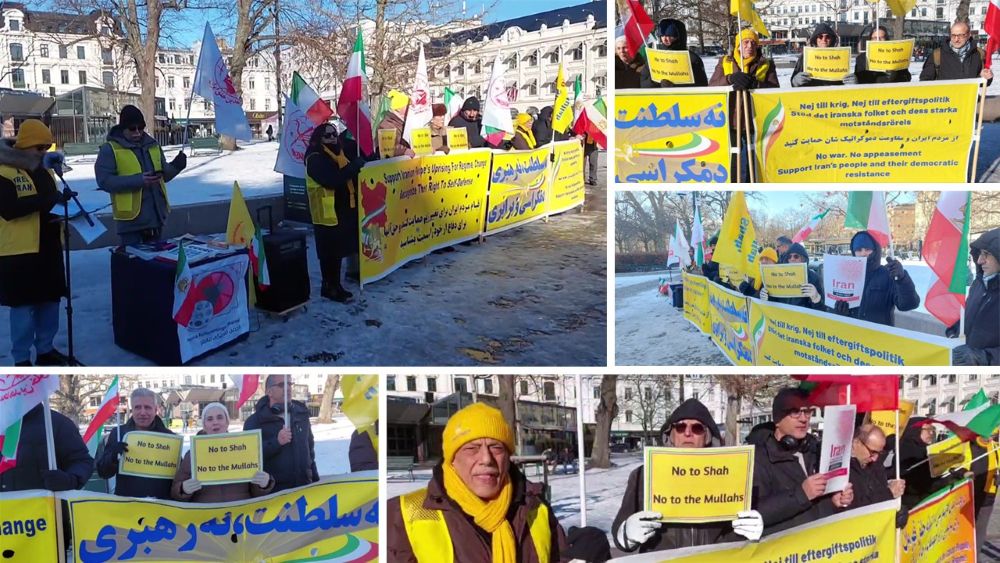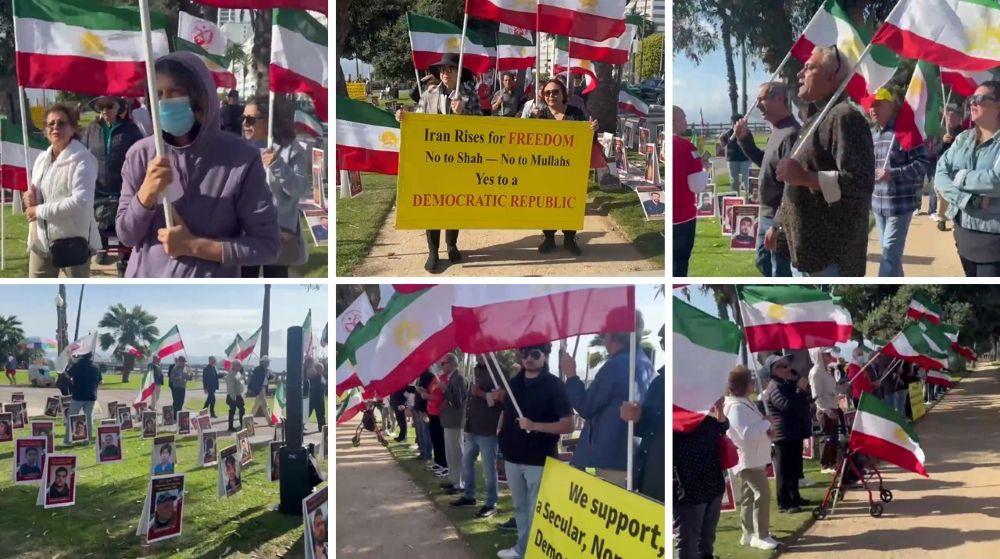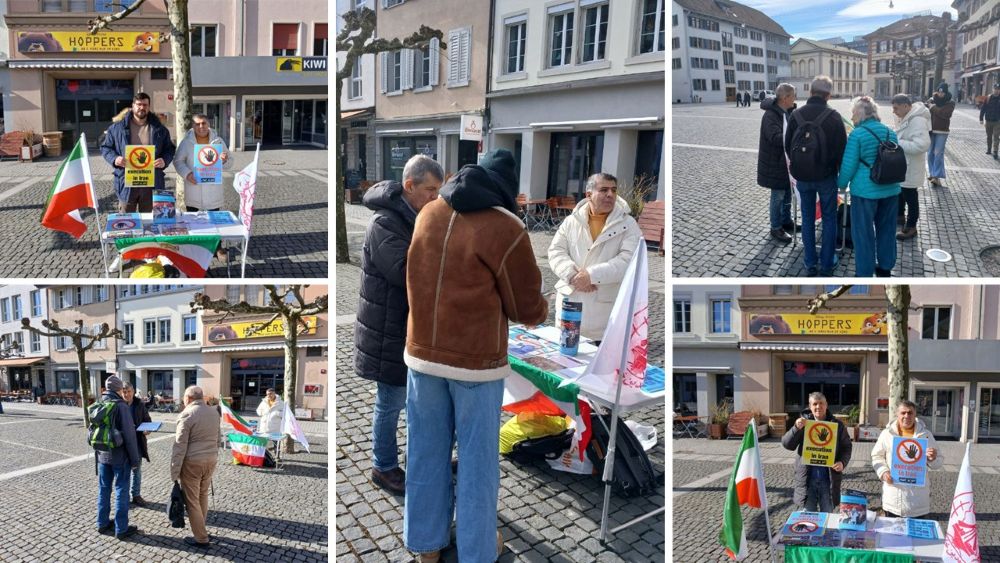
Drawing parallels with Germany’s history, Däubler-Gmelin highlighted the critical importance of justice, democracy, and human rights, warning that regimes that commit crimes are destined to fail. She advocated for a stronger International Criminal Court (ICC) and urged influential nations to support, rather than undermine, its mission. “An independent international court is essential,” she asserted, calling on the global community to ensure that those responsible for mass atrocities are held accountable.
Däubler-Gmelin also expressed strong support for President-elect Maryam Rajavi’s Ten-Point Plan, particularly its goal of abolishing the death penalty in Iran. Additionally, she urged the imposition of targeted sanctions on Iranian judges who abuse their authority to uphold the regime’s oppressive practices.
She commended former UN Special Rapporteur Professor Javaid Rehman for his brave work in documenting human rights abuses in Iran, calling for immediate measures to end the regime’s use of Sharia law and judicial power to suppress its people. Däubler-Gmelin concluded by praising the women of Iran who continue to resist the regime, noting the increasing international support for their cause.
The full text of Herta Däubler-Gmelin’s speech follows:
Dear President-elect Rajavi, dear friends, and, let’s say, in this conference hall and at the screens in Albania as I’ve been learning, thank you so much for this wonderful welcome.
I think I’ll follow I think I’ll follow the venerable model of Mr. Boumedra, and I’ve thrown away my speech. And, please, if you allow me, I’ll give some more additional considerations and perhaps, let’s say, topics to this wonderful conference.
I think as a former politician, law professor, and lawyer, it’s most important to show solidarity to your appeal at this conference and to the fight. Let’s say your compatriots in and out of Iran are conducting all the time and I think it’s important to show support for the appeals that you have.
At this conference, it’s the cry for justice for the Iranian people, and I fully support that. It’s the cry for democracy, for human rights, and, of course, for the end of impunity of the powerful. And I think this is most important. We know that quite well.
You see, coming from Germany, I can say that we Germans had to learn our lessons, historical lessons, the hard way. We learned that a politic that commits or orders crimes, violations of human rights, and other atrocities and crimes against mankind will ruin a country and a population in no time as it did ours. And, of course, we have learned, that justice, democracy, and let’s say, human rights don’t come for free.
And so I really want to repeat my deep respect for all of those who are fighting for this end and, of course, my deeply felt empathy to all, let’s say, mothers and fathers and, well, kids and grandchildren of the people who have been killed in the Iranian regime in the last, let’s say, decades.
I think to come to international law, it is most important to have, let’s say, a strong international law and functioning mechanisms, well, to put it into practice. And we know quite well that this is an appeal, which is a bit old, if I may say so.
You see, as a law student in the sixties at my university in Berlin, I learned of Gustave Monnier. He was one of the presidents of the Red Cross at the end of 19th century. This was the most important time when the first conventions on human rights were agreed upon. They were written down and agreed, and what did he say? He was a really wise man, and I love history as you do, excellency. He said, well, we can write down conventions. We can agree on conventions, but as long as we do not manage to take those powerful people before an independent international court, they will do what they want. They won’t bother with international conventions.
I think he’s absolutely right. And as you mentioned, Nuremberg, of course, we all know Hitler would not have been before a German court in case he wouldn’t have, let’s say, besieged all the time.
And we know that, and that’s why we need an international independent court. And this was one of the reasons why, first, as a member of the NGO, the Coalition for an International Criminal Court, I fought for this end, and I could participate in the Rome Conference and was absolutely lucky as a Minister of Justice to ratify the Rome Statute, to bring the international criminal court to an existence, and, of course, to introduce, you have mentioned that, Mrs. Sadat, the first national international criminal court, which is a model. And it can help, let’s say, to bring those guys to justice if they are, let’s say, connecting points with our countries and our areas.
So this was very interesting. I think we have to look for the ICC to be strengthened, to get more teeth. Because international law at the moment, well, seems to be rather weaker. And one of the reasons my, American friends, please, well, let’s say, see what I mean. It would be easier if not the most powerful countries of the world would look to the International Criminal Court as a court for others, but participate, and at least, only an appeal to my American friends to keep on trying to get them in, to support, and not to weaken international law or the international criminal court.
Now coming to Professor Rehman, I admire you. You see, having been a long-standing member of the Council of Europe Parliamentary Assembly, I know that it’s not only a question of historical and scientific adeptness to make such a wonderful report, but it takes, of course, political, well, courage, and you had that.
Modest as you are, he said, there were some challenges. I can see what you mean, and we are deeply grateful that you wrote this report.
Well, you see, another thing is that, of course, in my country and all over Europe, and I hope in all of the Western world, it’s quite clear that we have to unite to stop this horror of mass killings now and immediately, this has to be stopped because we know quite well that the justice and all those offices in prisons, they are letting themselves be misused by the Ayatollah and the criminal mullah regime. This has to be stopped and, of course, the use of Sharia in this way as they do it has to be stopped.
You see, I’m often in countries with a Muslim population, and I’ve met quite a lot of Muslim scholars, and they all tell me that it’s not the right way to use justice and this, at least, this version of Sharia has to stop immediately as well.
So I think to summarize it, it’s not only the politics that has to change, and I will agree with all of those who have said that, but it’s quite clear that we have to sanction not only the Revolutionary Guard. This is quite clear. It’s more symbolic. We know that. But we have to sanction the judges who are misusing their power by, well, being the henchmen of the Ayatollah regime.
And this is most important, and let me say, President-elect, I found your Ten-Point Plan to abolish, the death penalty very important. You see, starting with a moratorium, it could be fulfilled step by step.
There are models in Islamic countries who have done that. So, it’s feasible, one has to convince the population, but it has been done. And now, let me come to the last sentence or last, point.
You see, I admire the women in Iran. Not only those who are, let’s say, resisting, but those young girls and women who are resisting by not wearing the hijab, and who are demonstrating, and they know what they are risking. And, please, let me tell you that those demonstrations are very well, let’s say, realized in my country. And there is a big movement of support and solidarity, and this is very political.
Because it’s possible in democratic countries to change the politics, and this is what we need. So let me, end by saying, “Women, Freedom, Life, and Resistance.”
Thank you so much.



